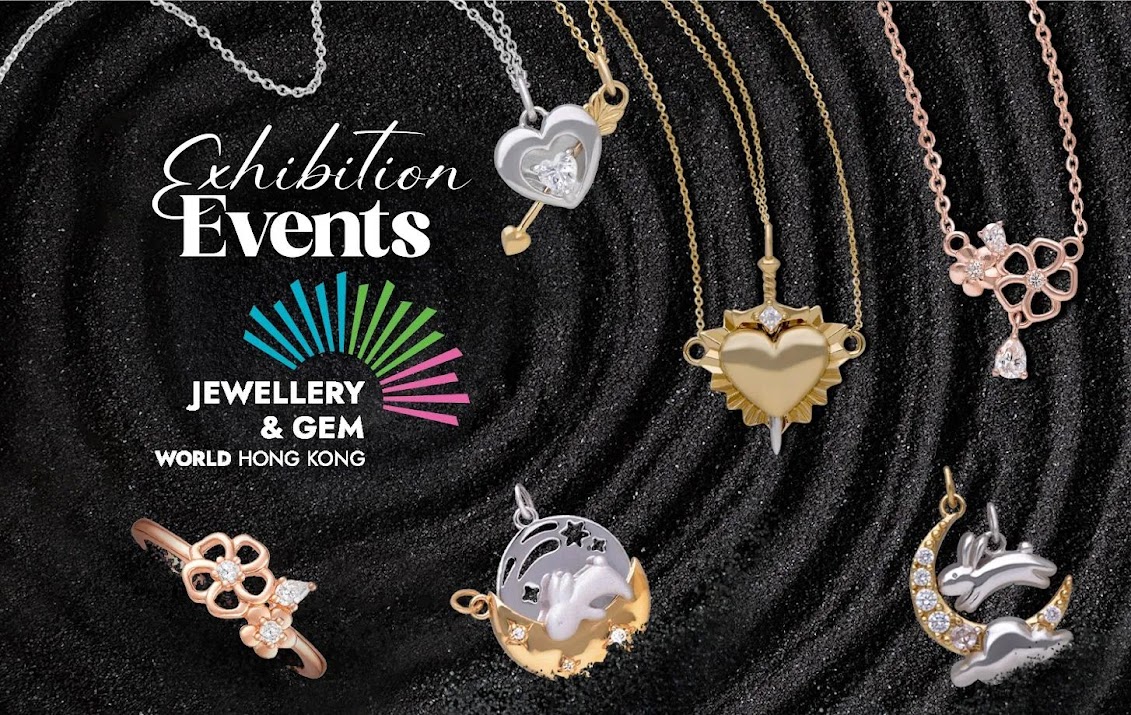Finding the right partner for your jewelry business is crucial to ensuring high-quality production, timely delivery, and overall business success. The jewelry market is competitive, and partnering with a reliable and experienced manufacturer can set you apart. Here’s a comprehensive checklist to guide you in your search for a successful jewelry partner.
A Checklist for a Successful Jewelry Partner Search
1. Experience and Expertise
Evaluate Experience
- Industry Longevity: How long has the company been in the jewelry production business? A company with many years of experience is likely to have refined their processes and built a reputation for quality. A long-standing company indicates stability and a proven track record, which can give you confidence in their ability to deliver consistently.
- Portfolio Review: Look at their past work. Do they have experience producing the types of jewelry you plan to sell? Reviewing their portfolio helps you understand their capabilities and aesthetic alignment with your brand.
Assess Expertise
- Specialized Skills: Do they specialize in particular styles or techniques that align with your brand’s needs? Expertise in specific areas like gemstone setting, metalworking, or innovative design techniques can significantly benefit your business.
- Certifications: Check for any industry-specific certifications or accolades that demonstrate their expertise and commitment to quality. Certifications such as ISO, RJC (Responsible Jewellery Council), or others can provide additional assurance of their professionalism and adherence to industry standards.
2. Quality Assurance
Inspect Quality Control Processes
- Material Sourcing: Where do they source their materials from? Ensure they use high-quality, ethically sourced materials. The origin of materials is crucial for ensuring product integrity and ethical practices.
- Production Standards: What quality control measures are in place during production? Consistent, high-quality output is crucial. Quality control processes should include regular inspections, testing, and adherence to industry standards to ensure every piece meets your expectations.
Check for Guarantees
- Quality Guarantees: Do they offer any guarantees or warranties on their products? This can be a good indicator of their confidence in their quality. Guarantees can also provide you with protection and peace of mind regarding product performance and durability.
3. Reputation and References
Research Reputation
- Customer Reviews: Look for reviews from other businesses they have worked with. Positive feedback from others can give you confidence in your choice. Online reviews, testimonials, and case studies can provide insights into their reliability and customer satisfaction levels.
- Industry Standing: Are they well-regarded within the jewelry industry? Membership in professional organizations or trade associations can be a good sign. Industry recognition and awards can further validate their credibility and excellence.
Request References
- Client References: Ask for references and contact their current or past clients to get firsthand feedback on their experience working with the manufacturer. Direct communication with their clients can provide you with deeper insights into their performance, reliability, and customer service.
4. Communication and Support
Evaluate Communication
- Responsiveness: How quickly do they respond to inquiries? Timely communication is vital for a smooth partnership. Efficient communication ensures that any issues or changes are promptly addressed, minimizing delays and misunderstandings.
- Transparency: Are they open and honest about their processes, pricing, and timelines? Transparency in communication builds trust and helps in making informed decisions.
Assess Support Services
- Design Assistance: Do they offer support in design and development? Having a partner who can provide design insights can be invaluable. Design support can help in refining your ideas, ensuring feasibility, and enhancing the final product’s appeal.
- After-Sales Support: Check what kind of after-sales support they offer. This includes handling returns, repairs, or any issues that might arise post-delivery. Comprehensive after-sales support ensures a seamless customer experience and can significantly impact customer satisfaction and loyalty.
5. Capacity and Scalability
Check Production Capacity
- Volume Capability: Can they handle the volume you need now and in the future? Ensure they have the capacity to scale up production as your business grows. Assessing their production capacity is crucial for meeting your current demands and planning for future expansion.
- Lead Times: What are their standard lead times? Make sure these align with your business needs. Reliable lead times are essential for maintaining your inventory levels and ensuring timely delivery to your customers.
Assess Flexibility
- Custom Orders: Can they accommodate custom orders or unique designs? Flexibility in production can be a significant advantage. The ability to produce custom pieces allows you to cater to specific customer preferences and differentiate your brand.
- Adaptability: How quickly can they adapt to changes in trends or demands? An adaptable partner can help you stay competitive by quickly responding to market shifts and new opportunities.
6. Financial Stability
Review Financial Health
- Financial Statements: If possible, review their financial statements to ensure they are financially stable and capable of sustaining a long-term partnership. Financial stability is crucial for ensuring the continuity and reliability of their operations.
- Payment Terms: Understand their payment terms and conditions. Ensure they are clear and agreeable. Clear and fair payment terms help in managing your cash flow and financial planning.
7. Ethical Practices
Ensure Ethical Standards
- Fair Labor Practices: Confirm they adhere to fair labor practices and provide safe working conditions. Ethical practices not only enhance your brand’s reputation but also contribute to a sustainable and responsible business environment.
- Environmental Impact: Investigate their environmental policies and practices. Partnering with an environmentally conscious company can enhance your brand’s reputation. Sustainable practices in sourcing and production are increasingly important to consumers and can set your brand apart.
8. Logistics and Delivery
Examine Delivery Processes
- Shipping Methods: What shipping methods do they use? Ensure they are reliable and offer tracking. Efficient shipping methods ensure that your products arrive on time and in perfect condition.
- Packaging Standards: Check their packaging standards to ensure products are well-protected during transit. Quality packaging protects your products and enhances the unboxing experience for your customers.
Confirm Timeliness
- On-Time Delivery Rate: What is their track record for on-time delivery? Timeliness is crucial to maintaining your business operations smoothly. Consistent on-time delivery helps in building trust with your customers and maintaining your business reputation.
9. Innovation and Technology
Assess Technological Capabilities
- Advanced Tools: Do they use advanced tools and technologies in their production process? Modern technology can enhance precision, efficiency, and innovation in jewelry making.
- Innovation Support: Are they open to incorporating new techniques and innovations? A partner who embraces innovation can help your brand stay ahead in the market.
Evaluate R&D Capabilities
- Research and Development: Do they invest in R&D to improve their products and processes? Strong R&D capabilities indicate a commitment to continuous improvement and innovation.
10. Legal and Compliance
Verify Legal Compliance
- Regulatory Adherence: Ensure they comply with all relevant industry regulations and standards. Compliance with regulations is essential for avoiding legal issues and ensuring the integrity of your products.
- Contract Review: Carefully review their contracts and agreements to ensure they protect your interests. Clear and fair contracts help in establishing a solid and trustworthy partnership.
Confirm Certification and Licensing
- Certifications: Check for necessary certifications and licenses. Certifications ensure that they meet industry standards and legal requirements.
Choosing the right jewelry partner requires thorough research and due diligence. By following this checklist, you can ensure that your chosen partner aligns with your business needs, maintains high standards of quality, and supports your brand’s growth. A successful partnership will not only enhance your product offerings but also build a strong foundation for your business’s future success. Taking the time to evaluate potential partners against these criteria can help you find a partner who will contribute positively to your business, ensuring high-quality production, reliable delivery, and ethical practices that align with your brand values.
Royi Sal has over 20 years of experience and partners in successful partnerships. Our meticulous process, from designing to producing jewelry, is handled by experienced technicians dedicated to ensuring quality at every step. We deliver this quality directly to your store.
We’re here to help you every step of the way. If you have your own jewelry design ideas, we can make your dreams come true, and we always have new designs for you to choose from. We support all your ideas and succeed together. Just contact us at sales@royisal.com. Our experts are available to advise you.
Share this post





Responses (0)